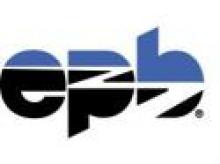In Erwin, Tennessee, an Incremental Approach Has Brought Success — Community Broadband Bits Podcast Episode 431

This week on the podcast Christopher welcomes back Lee Brown, President and CEO of Erwin Utilities, to talk about what’s been going on since we last spoke with them more than three and a half years ago. Erwin is a town of around 6,000 and the county seat of Unicoi County, Tennessee, along the state’s eastern border.
The two revisit the success Erwin has seen with an incremental Fiber-to-the-Home buildout over the last six years. The utility at this point has no debt, and covers the whole town aside from one remaining pocket to be complete early next year. It has expanded into the county, bringing affordable 25mbps and gigabit Internet access to residents, and enjoys a take rate of nearly 50%.
Lee reflects on the benefits of Erwin’s strategic approach to building a fiber network and lessons learned. In 2019 it completed the transition to becoming the Erwin Utilities Authority, which will give it flexibility moving into the future, and in April of this year connected its 3000th customer.
This show is 26 minutes long and can be played on this page or via Apple Podcasts or the tool of your choice using this feed.
Transcript below.
We want your feedback and suggestions for the show-please e-mail us or leave a comment below.
Listen to other episodes here or view all episodes in our index. See other podcasts from the Institute for Local Self-Reliance here.
Thanks to Arne Huseby for the music. The song is Warm Duck Shuffle and is licensed under a Creative Commons Attribution (3.0) license.





